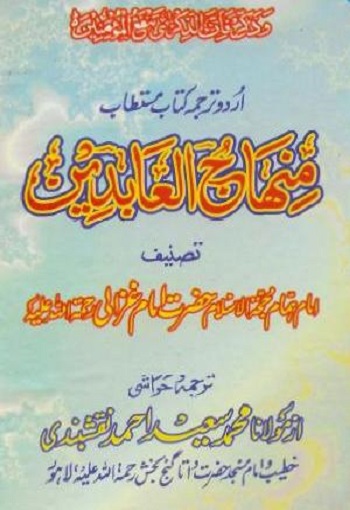


This new theology aimed to provide a framework for the pursuit of the natural sciences and a basis for Islamic science and philosophy to flourish beyond the 12th century.

Griffel demonstrates that al-Ghazali intended to create a new cosmology that moved away from concerns held earlier by Muslim theologians and Arab philosophers. The al-Ghazali that emerges offers many surprises, particularly on his motives for leaving Baghdad and the nature of his "seclusion" afterwards. Using the most authoritative sources, including reports from al-Ghazali's students, his contemporaries, and his own letters, Griffel reconstructs every stage in a turbulent career. Frank Griffel presents a serious revision of traditional views on al-Ghazali, showing that his most important achievement was the creation of a new rationalist theology in which he transformed the Aristotelian views of thinkers such as Avicenna to accord with intellectual currents that were well-established within Muslim theological discourse. This book offers a comprehensive study of al-Ghazali's life and his understanding of cosmology-how God creates things and events in the world, how human acts relate to God's power, and how the universe is structured. His contributions to Islamic scholarship range from responding to the challenges of Aristotelian philosophy to creating a new type of Islamic mysticism and integrating both these traditions-falsafa and Sufism-into the Sunni mainstream. Born in northeastern Iran, he held the most prestigious academic post in Islamic theology in Baghdad, only to renounce the position and teach at small schools in the provinces for no money. 1111) was one of the most influential theologians and philosophers of Islam and has been considered an authority in both Western and Islamic philosophical traditions. Credited with dealing the deathblow to Aristotelian philosophy in the Muslim world and bringing authentic Islamic spirituality into the mainstream, his life and thought were extremely influential in shaping the spiritual values and practices of medieval society and are no less relevant today. 1111) jurist, legal theorist, logician, theologian, and mystic was a master of both the outer and inner sciences of the Shariah who is regarded by many as the greatest Muslim thinker to have lived after the Pious Predecessors. Winter) Cambridge Muslim College About the author The Proof of Islam Imam Abu Hamid Muhammad ibn Muhammad al-Ghazali (d. A careful and idiomatic English translation of one of Imam al-Ghazali’s most powerful books, which shows the comprehensive depth of the Qurans teachings. Editing and footnotes by Mariam Madge Conlan. The result is an essential guide to improving one’s relationship with both the Creator and the creation and a perfect introduction to Imam al-Ghazali’s other great works. This condensed work presents Imam al-Ghazali’s profound insights regarding man’s lifelong struggle to draw closer to Allah in a simple framework, providing the reader with a step-by-step tried and proven method for spiritual development. AL-GHAZALI’s adapted summary of Ihya Ulum al-Din -.THE FORTY PRINCIPLES OF THE RELIGION is a comprehensive distillation of Imam al-Ghazali’s magnum opus, Ihya Ulum ad-Din (The Revival of the Religious Sciences), in which he explores the spiritual depth of virtually every aspect of Islam.


 0 kommentar(er)
0 kommentar(er)
